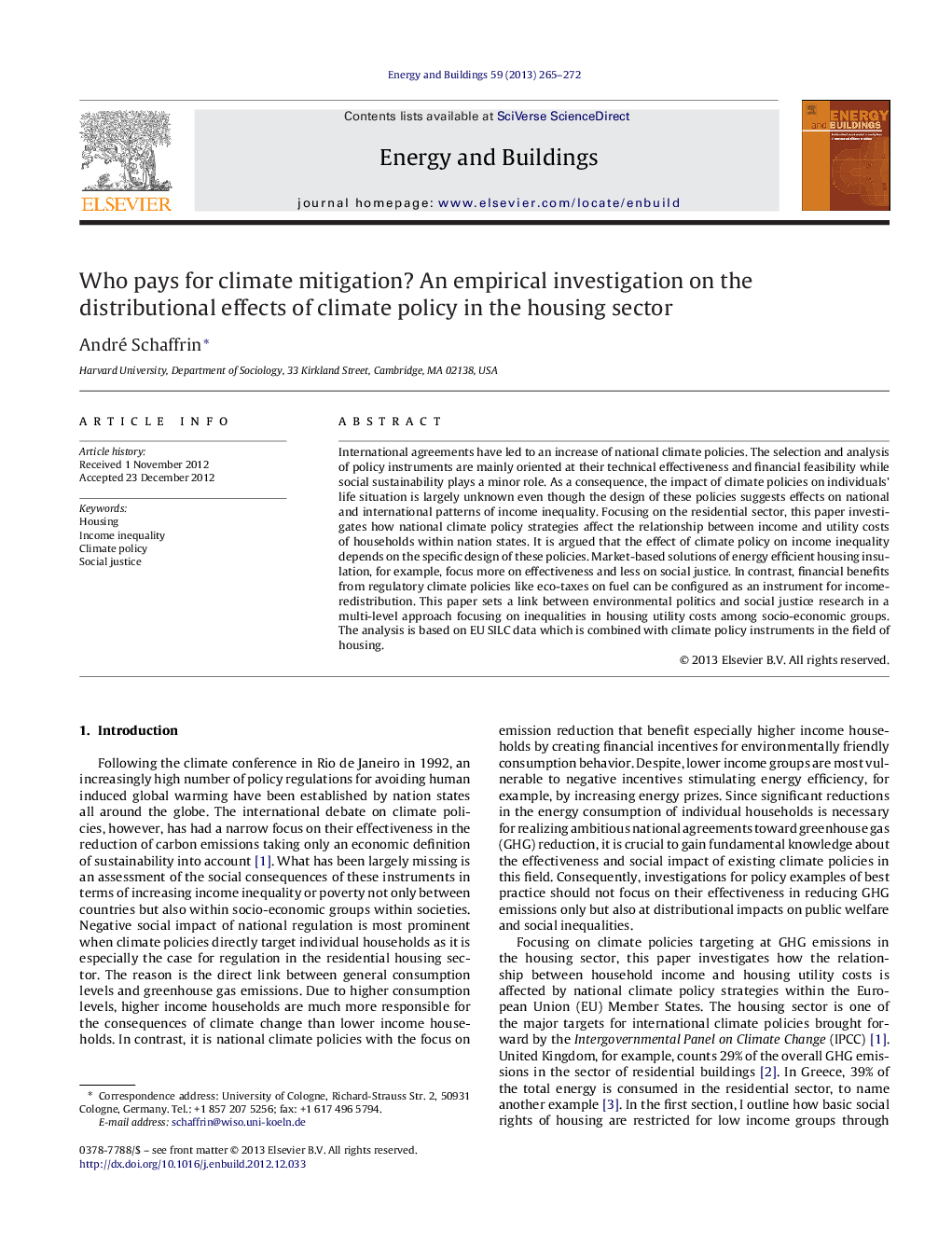| Article ID | Journal | Published Year | Pages | File Type |
|---|---|---|---|---|
| 263506 | Energy and Buildings | 2013 | 8 Pages |
International agreements have led to an increase of national climate policies. The selection and analysis of policy instruments are mainly oriented at their technical effectiveness and financial feasibility while social sustainability plays a minor role. As a consequence, the impact of climate policies on individuals’ life situation is largely unknown even though the design of these policies suggests effects on national and international patterns of income inequality. Focusing on the residential sector, this paper investigates how national climate policy strategies affect the relationship between income and utility costs of households within nation states. It is argued that the effect of climate policy on income inequality depends on the specific design of these policies. Market-based solutions of energy efficient housing insulation, for example, focus more on effectiveness and less on social justice. In contrast, financial benefits from regulatory climate policies like eco-taxes on fuel can be configured as an instrument for income-redistribution. This paper sets a link between environmental politics and social justice research in a multi-level approach focusing on inequalities in housing utility costs among socio-economic groups. The analysis is based on EU SILC data which is combined with climate policy instruments in the field of housing.
► Four problems responsible for energy inequalities in housing are identified. ► Climate policies do either increase or reduce these inequalities. ► Higher income households spend more on total energy than lower income households. ► Controlling for lifestyle, households at the risk of poverty pay more on energy. ► Higher income households spend more in countries with progressive climate policies.
